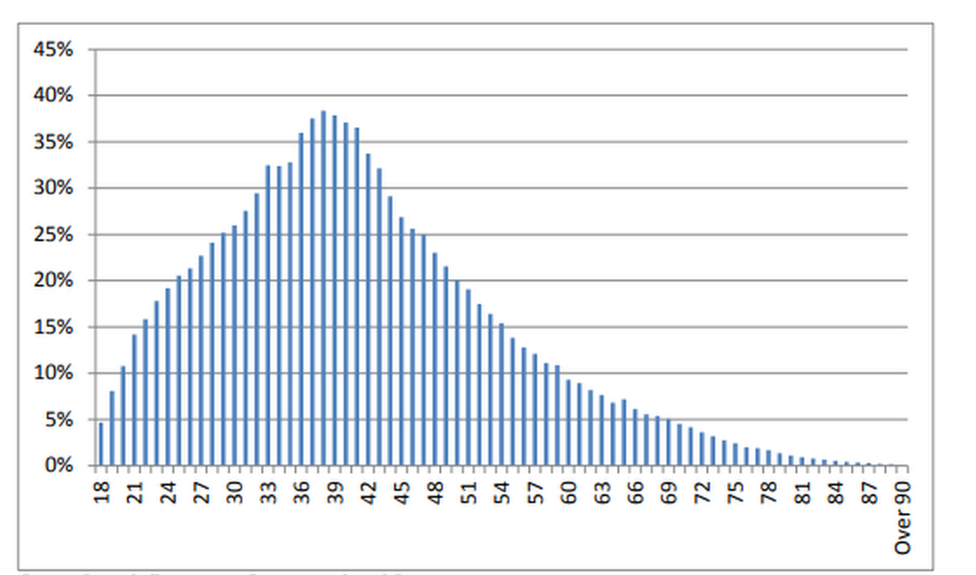Do a third of Scots men really have a criminal conviction?
- Published

It's an eye-catching figure - more than a third of men in Scotland have at least one previous conviction. But where has that come from - and is it believable?

This particular statistic made headlines after being highlighted by new organisation Release Scotland - which aims to help ex-prisoners back into the workplace.
Surely, it can't be that nearly one in every three men you encounter walking in the street or in the supermarket has a criminal record?
Well, that is a figure based on past official data - as far as it goes - that has been widened out by statisticians to apply to the whole population.
The figure appeared in research five years ago by a team at the University of Glasgow - their 2013 paper was part of a review into the impact of the Rehabilitation of Offenders Act (1974), external.
The university's Scottish Centre for Crime and Justice Research (SCCJR) looked closely at Scottish government analysis carried out in 2012.
It showed more than 38% of men and 9% of women born in 1973 were known to have at least one criminal conviction.
However, it excluded convictions from;
the children's hearing system
those that happened before 1989
and for motoring and other minor offences
The report said that if those three categories had been included, it would "tend to increase the prevalence of convictions".
What information was looked at?
The government findings were based on the Scottish Offenders Index (SOI)- data from court records of every individual convicted in a Scottish court between 1989 and 2012.
As the data in the SOI only goes back to 1989, the figures appear to drop off quite quickly for those born before 1973.
However, using courts data from earlier periods the analysts were able to show there were many more court convictions in earlier periods.
The 1970s particularly revealed much larger numbers of court convictions for relatively low-level offences such as breach of the peace and drunkenness.
The SCCJR said the figures were then widened out to arrive at an estimate for the whole adult population.
"Extrapolating to the population as a whole," the SCCJR said "at least one-third of the adult male population and nearly one in ten of the adult female population is likely to have a criminal record."
It said criminal convictions were an issue for a "considerable portion of the Scottish population".

Proportion of adult male population with a known criminal conviction (post-1989). Source: Scottish Government
That study also found that the majority of those people would go on to have only one conviction - about half of men and three-quarters of women.
The report says: "These data show that accessing employment with a criminal conviction is not an issue for a very small and hardcore minority, but something which affects a significant proportion of people throughout Scottish society.
"Even for women, nearly one in ten of those at the prime career ages are having to deal with a criminal history when applying for a job."
The reported also showed the distribution of offences among criminal convictions in Scotland over 40 years. Most convictions involved offences which in general tend to be less serious.
"This data makes clear that criminal records are an issue not only for people with the most experience of criminal justice (e.g. ex-prisoners)" it says.
What do the figures look like in other parts of the UK?
Research on convictions has also been conducted for England and Wales, and like the Scottish figures, they are based on taking particular years and extrapolating the findings to the population at large.
Conviction histories of Offenders between the ages of 10 and 52 England and Wales, external - a Ministry of Justice publication in 2010 - found that 24% of men and 6% of women had a least one criminal conviction (that was based on 2006 figures).
Interestingly, analysis of the cohort of 1953 showed 33% of men had at least one conviction with 18% of those recording more than five convictions.
- Published22 May 2018
